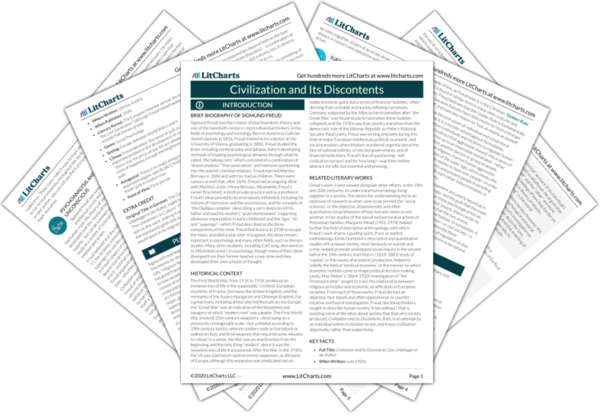LitCharts assigns a color and icon to each theme in Civilization and Its Discontents, which you can use to track the themes throughout the work.
Psychoanalysis and the Unconscious
Individuality vs. Social Bonds
Suffering, Aggression, and Death
Religion, Delusion, and Belief
